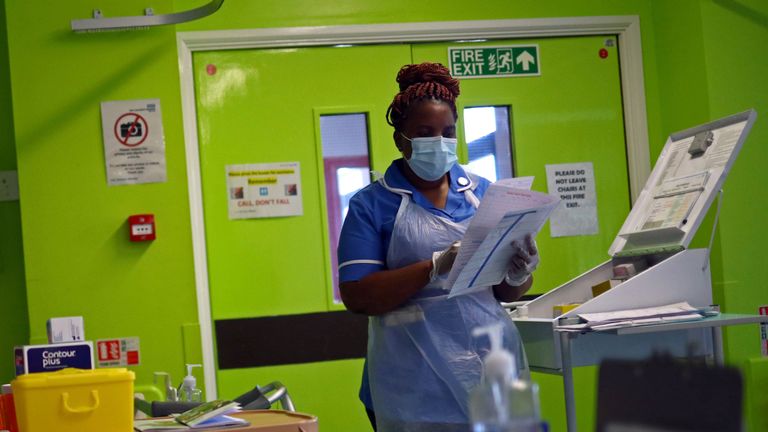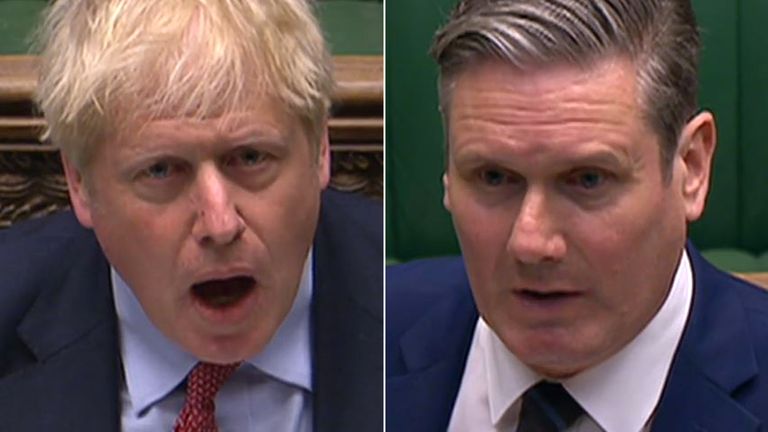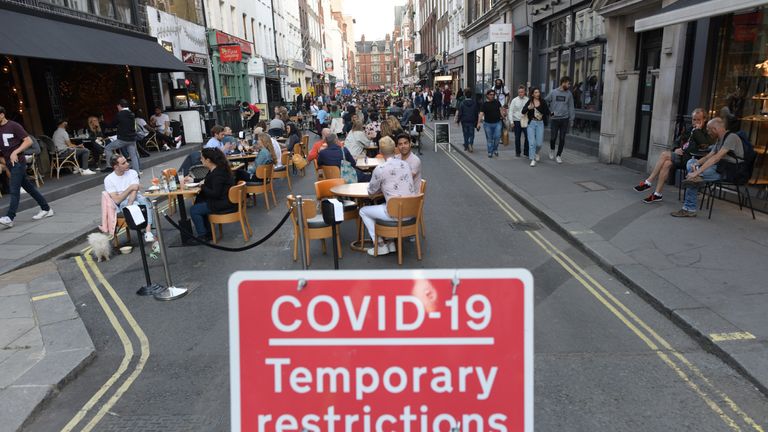Boris Johnson has promised to set up an independent inquiry into the government’s handling of the coronavirus pandemic.
The prime minister resisted calls for it to be formed now, given the warnings of how deadly a second COVID-19 spike could be this winter.
He was challenged to commit to it by Sir Ed Davey, acting leader of the Liberal Democrats.
“Under this prime minister, we’ve suffered one of the worst death rates in the world and Europe’s worst death rate for health and care workers,” the former cabinet minister under the Conservative/Lib Dem coalition government said in parliament.
“Previously, he’s refused my demand for an immediate independent inquiry saying it’s too soon – even though back in 2003 he voted for an independent inquiry into the Iraq war just months after that conflict started.
“If he still rejects an immediate inquiry, will he instead commit in principal to a future public inquiry – yes or no?”
Mr Johnson has been asked the question several times and insisted the government is constantly learning lessons, but went slightly further at Prime Minister’s Questions on Wednesday.
He said: “I do not believe now, in the middle of combating the pandemic, is the right moment to devote huge amounts of official time to an inquiry.
“But of course we will seek to learn the lessons of this pandemic in the future and certainly we will have an independent inquiry into what happened.”
His spokesman did not give any further details in a briefing to journalists after, simply saying: “I haven’t got any more detail for you on how it would work. We will set that out in due course.”
Some have questioned whether Mr Johnson is already preparing for an inevitable inquiry, after his comments that “too many care homes didn’t really follow the procedures in the way that they could have”.
Ministers have been put under new pressure for the probe to be set up given a warning from top scientists and academics this week that 120,000 people could die in hospitals in the “reasonable worst-case scenario”.
:: Listen to the Daily podcast on Apple Podcasts, Google Podcasts, Spotify, Spreaker
The report, commissioned by the government’s chief scientific adviser Sir Patrick Vallance, urged the government to put measures in place to prepare for the R rate – the average number someone with the virus infects – rising to up to 1.7.
It is currently thought to be below 1 – and ministers have warned if it rises above that threshold lockdown measures could be reintroduced.
Fears over local flare ups have also arisen in Blackburn and Darwen, where residents face new restrictions to avoid going into a full-scale local lockdown like Leicester.



